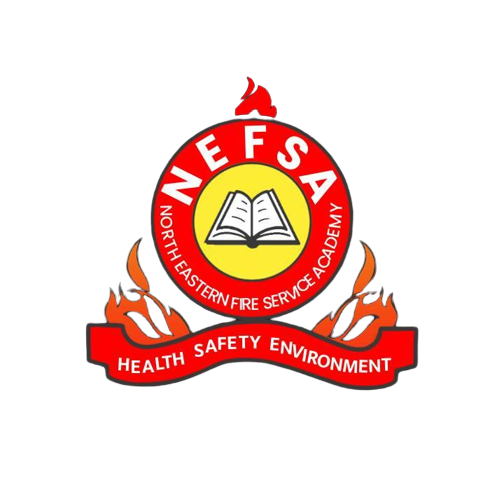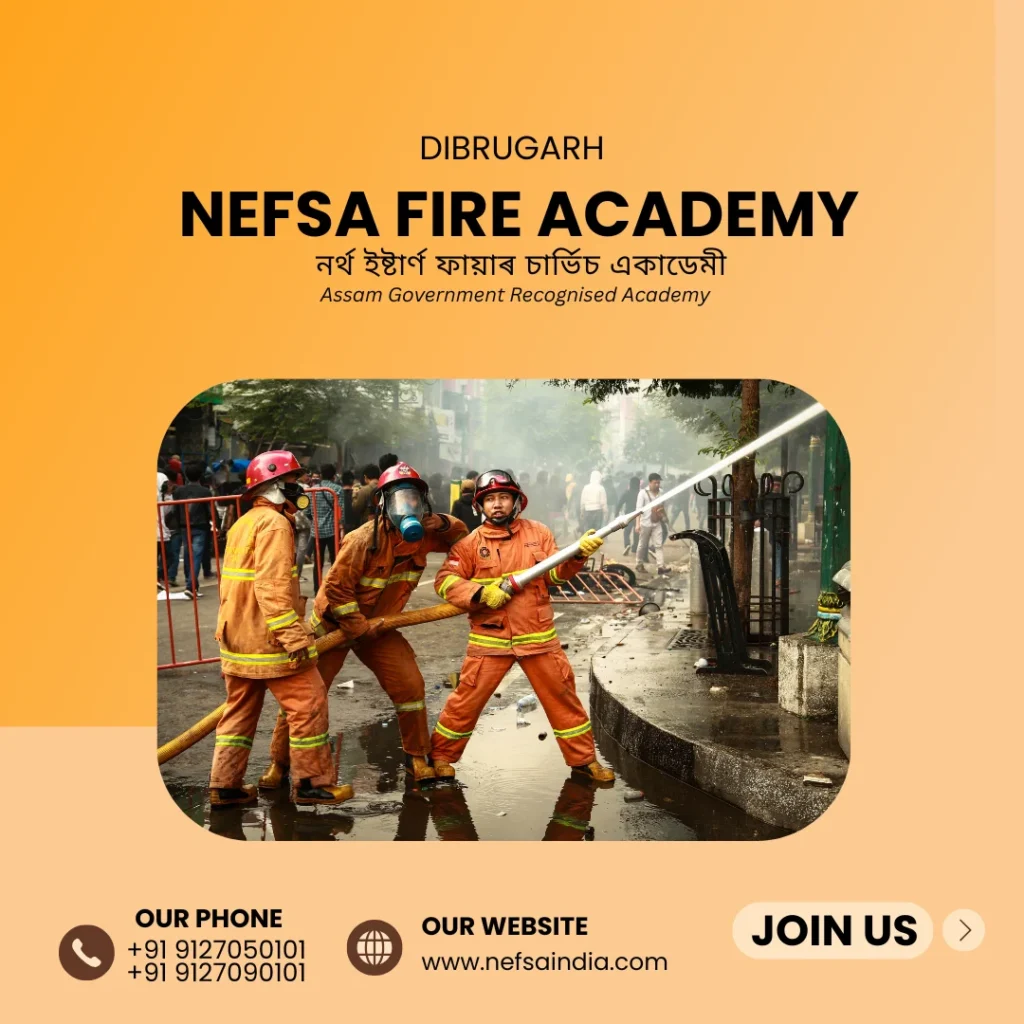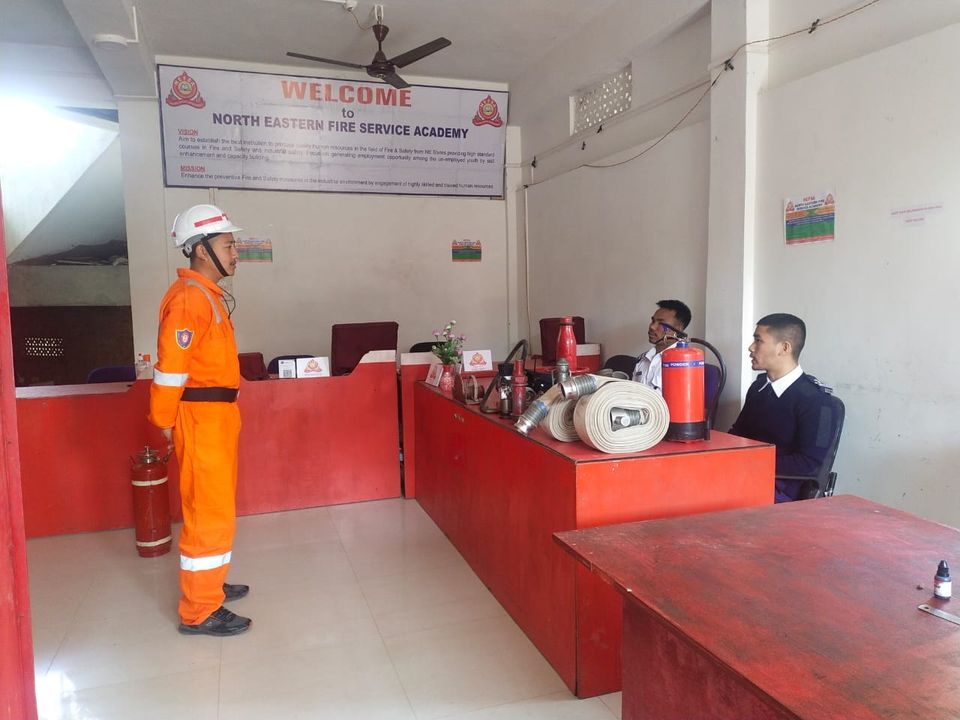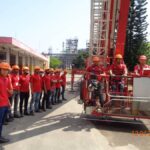Fire safety isn’t just a vocational option — it’s a growing, mission-critical profession that keeps people, industry and infrastructure safe. The North Eastern Fire Service Academy (NEFSA) in Dibrugarh, Assam, offers a range of government-recognized diploma and certificate programs designed to turn motivated learners into qualified fire-safety professionals. NEFSA’s mix of classroom theory, practical drills and placement support helps students convert training into paying, stable careers.
Why choose a career in fire & safety?
Rapid industrialization, stricter regulatory standards, and increasing emphasis on workplace safety have pushed demand for certified safety professionals across sectors — manufacturing, oil & gas, airports, refineries, hospitals, and government agencies. Qualified candidates can pursue roles such as Fire Safety Officer, Industrial Safety Manager, Risk Assessor, Disaster Response Specialist, and Fire Sub Officer. NEFSA highlights job placements into reputed organizations as part of its track record.
NEFSA’s core programs (overview)
NEFSA offers multiple programs suited to different entry points — from certificate courses for newcomers to diploma and advanced management courses for those targeting supervisory or specialized roles. Typical offerings include:
-
Diploma in Fire & Safety / Diploma in Fire & Safety Hazard Management — foundational technical training (eligibility varies by program).
-
Driving cum Pump Operator (DCPO) — practical training for pump/vehicle operations used in firefighting.
-
Advanced Fire Safety Management / Industrial Fire & Safety Certification — for professionals seeking supervisory or industry-specific roles.
-
Disaster Management & Rescue Training — emergency response, incident command and community safety.
For exact course names, durations and eligibility, check NEFSA’s official course listing.
What makes NEFSA training career-focused?
-
Practical, hands-on training: NEFSA emphasizes drills, pump operations, squad practice and real-world simulations alongside classroom learning — crucial for operational readiness.
-
Government-recognized certifications: NEFSA promotes government approval and industry recognition for many of its programs, which helps graduates meet employer requirements.
-
Placement support & industry links: The academy cites past placements with organizations such as Oil & Gas units, manufacturing firms and public agencies — an important bridge from training to employment.
-
Regional focus with national relevance: Located in Northeast India (Dibrugarh), NEFSA serves local youth while offering credentials and skills relevant across India’s industrial and public safety sectors.
Who should enroll?
-
School leavers (10th / 10+2) aiming for a technical/diploma path in safety.
-
Working professionals in industrial settings seeking formal certification or upskilling.
-
Aspiring firefighters, pump operators and rescue personnel wanting structured practical training.
Typical career paths & salary expectations
After certification, graduates commonly enter roles such as Fire Safety Officer, Safety Supervisor, Industrial Safety Executive, Pump Operator, and Disaster Management Associate. Pay scales vary by employer, industry and region, but certified safety professionals often find stable, unionized or contract positions with opportunities to grow into managerial safety roles or consultancy. (For local salary ranges, check regional job boards and employer postings.)
How to apply & what to expect
-
Check eligibility for the desired course (many technical diplomas require 10+2 or ITI; some advanced courses require prior experience).
-
Visit NEFSA’s course page / admission section for application forms and schedule details.
-
Attend orientation & practical sessions: expect physical drills, equipment handling, classroom modules and exams. NEFSA runs orientation programs to onboard new batches.
FAQ
Q: Are NEFSA certifications recognized?
A: NEFSA promotes government-approved and industry-recognized certifications for several of its diplomas and certificates — always verify the specific course recognition before enrolling.
Q: Does NEFSA provide placements?
A: The academy advertises placement assistance and past placements in reputed organizations; ask admissions for the latest placement statistics and employer list.
Q: What practical skills will I learn?
A: Firefighting drills, pump & vehicle operation, fire prevention systems, risk assessment, rescue techniques and disaster response planning.
Final takeaway & call to action
NEFSA’s blend of hands-on training, recognized curricula and placement focus makes it a compelling pathway for anyone serious about a career in fire and industrial safety — especially youth in Northeast India who want skills that are in demand nationwide. For course details, dates and admissions, visit NEFSA’s official course page and contact their admissions team
Contact us today to know more about admissions, batch schedules, and course details.
Visit: www.nefsaindia.com
Location: Dibrugarh, Assam
For More Blogs:- Click here







